
Final Fantasy XII: The Zodiac Age Review
Square Enix is certainly no stranger to ports and remasters for many of their key properties. Earlier this year alone we got a new version of Dragon Quest VIII on 3DS as well as basically the entire existing Kingdom Hearts franchise on PlayStation 4. Now it is Final Fantasy XII's turn to get a relaunch.
As you reading this probably know by now, Final Fantasy XII: The Zodiac Age is not simply an up-rezzed port of the PlayStation 2 game. In fact, for those of us in the West, there are so many tweaks and additions made to the original release that it is difficult to list them all succinctly.
Let me be candid here for a moment: In a sense, I find reviewing remasters like this a little bit trickier because there's a bit more ambiguity on what should be the focus of the review. Should it place the most attention to what is shiny and what is new? Or should it review the whole package as if the reader has no prior familiarity with the game's contents, as if it's new?
There's probably no one-size-fits-all answer for this, but Final Fantasy XII is so mechanically different and weird that I want to start at the very beginning - at the actual 11-year-old game that you'll find at the core of this package. With the nature of this particular remaster, the gameplay tweaks themselves are likely the most interesting elements to talk about to begin with.
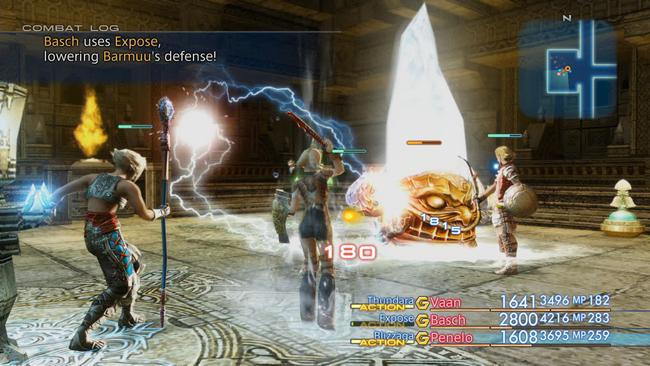
Just so you know where I am coming from, let me start by saying that I largely adored the original game back when it released more than a decade ago. Final Fantasy XII was definitely something pretty different compared to other games in its franchise, and even today there aren't many titles that it can be easily compared to.
It forgoes both a traditional turn-based battle system, and it's not an action RPG either. Rather, FF12 utilizes combat largely based on automated player-directed protocol. Put shortly, the player dives into a menu to set the parameters that dictate how the characters will behave, and then they .. behave exactly that way.
This is called the 'Gambit System' and it met some mixed reactions back during the original release. In a sense, the player is "one step removed" from the actual actions taking place in the game. You are neither controlling the characters directly nor are you specifically selecting options from a menu. Instead, it's almost as though the player is programming the combat from a distance. Some have compared it to being a bit like the combat systems you might find in an MMORPG.
Depending on the type of interactivity and player agency you might like to see in an RPG, maybe you read the previous paragraph with a grimace on your face. Or perhaps you read it nodding with a raised eyebrow. To say that the combat is "love it or hate it" feels like it might be too simple a description, but it does feel like this set up some may not take favor with no matter what tweaks Square Enix makes to it.
I personally find combat to be sort of like a puzzle. Depending on the ability sets of the foes you are encountering, you have to adjust the abilities your characters are using, as well as the priorities of these abilities, in order to proceed through the game. This is especially true for the game's many, many optional boss encounters, which cannot be easily taken down with brute force.
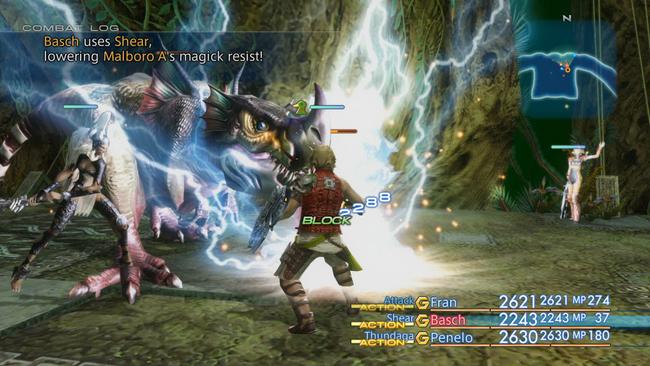
One crucial aspect tied to the Gambit system is that of licenses. In the original Final Fantasy XII, any character could unlock any ability, wear any armor, and do just about whatever you wanted them to do to. It offered a high level of flexibility, certainly, but this inevitably brought some criticism. Characters were totally interchangeable and ultimately could become masters at everything. The Zodiac Job System adds a touch of limitation to what characters are allowed to do by giving the player the ability to assign each character a role that then sticks with them.
For example, I made Balthier a White Mage, so he gets access to a variety of extremely useful healing abilities and protective buffs. On the other hand, I set Basch as a Bushi (like a Samurai), a class that gets no magical abilities whatsoever. So Basch has to rely on other characters to keep himself healed, cleared of bad status effects (of which there are plenty in this game) or properly situated with boons. Party coordination is thus a bit more important now, and configuring your team to cover your physical, magical, offensive, and defensive bases requires a little more preparation and thought.
Fundamentally, this job system is easily the most significant change in The Zodiac Age. It's not going to affect the internal workings of Gambit system directly, but it certainly affects how the player uses it.
No longer can you have your party wail on an enemy's elemental weakness in unison, nor can you have everybody simultaneously trying to snatch a rare loot from a rare monster. Some characters necessarily have to rely on item gambits to maintain their own health. You get the idea.
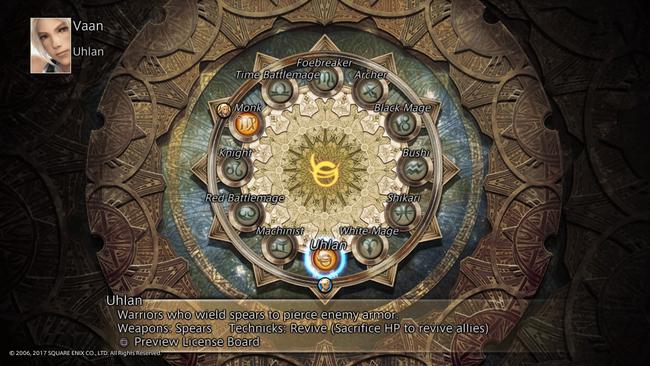
Brand new to The Zodiac Age is the ability to give each character a second job as well. This alleviates some further criticism that the job system (originally found in the Japan-only PS2 release) was too restrictive, and gives players a little wiggle room in how they want to build their party. This change means that you can create a magic caster with access to nearly the entire arsenal of both black and white magic, or you can create a tank with access to all sort of weaponry he normally couldn't use before, but characters still have restrictions.
Despite my already strong appreciation for the mechanics found in the original game, the job system alterations in The Zodiac Age increase my fondness just that much more. It places more responsibility on the player to understand the workings of the game and how to use their characters within the confines of limited job selection. There's enough variety offered that you can build your party in a vast number of ways without it being too wide open to be bland. Hard decisions have to be made by the player in creating their team. That extra designation of jobs simply enhances the agency that the player has in the game.
Aside all that, though, I think where the game truly shines brightest is actually how the game is structured.
In a nutshell, Final Fantasy XII opens up to the player both relatively early in the game and to a considerable scale. Very rarely are you tied to a narrative path as your only option to process in the game. Even near the very onset, you can decide to take Vaan and Penelo into the Westersand, which contains creatures significantly tougher than what the player would normally encounter at that point. Later when you are tasked to head to Jahara, you can do that, certainly, or you can travel in the opposite direction and explore other areas entirely - basically putting the narrative path on the back burner for a while.
Head through the Mosphoran Highwaste, through the Salikawood, and into the dangerous Necrohol of Nabudis if you'd like. You can traverse the depths of the Zertinan Caverns where you might run into the Esper Adrammelech. Do a sidequest, and you can dive deeper into the Barheim Passage. In all these places you can find plenty of tough monsters to test your party against, as well as plenty of loot to create new armor and weapons.
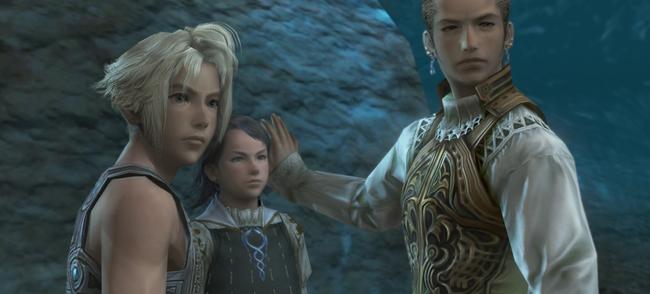
From a practical standpoint, another small but notable change in The Zodiac Age is how magic abilities are acquired. In the original game, you could purchase most magicks relatively early on from shops. You didn't have to be far in the game to have access to nearly the entire suite of abilities available in the game. Now, many magicks are acquired in chests, and often significantly later in the game from their original version counterparts. This effectively does two things: it forces the player to work with a more limited magick ability pool for a longer period of time, and it coerces the player to spend more time exploring zones in order to find these magicks to expand their repertoire.
There are many optional things to do in the game that you can totally ignore if you want to. Final Fantasy XII has this level of openness the few other Final Fantasies have. And most importantly, making the decision to step aside from the main quest to dedicate to these optional areas feels worthwhile and rewarding. New areas mean new loot, which means new equipment (and in the new Zodiac version, new Magicks), and tough foes to encounter. Basically, throughout nearly the entirety of the game, it is largely set for the player to decide what they are going to do next, not the game itself making that decision for you.
Now in the original version of the game, actually doing all of this exploration required time and patience. Final Fantasy XII is a long game and not something you can quickly marathon through in a week. While I said the Job System is the most significant change, the new 'turbo' fast forward option is by far the most useful. Basically all combat and exploration can be sped up to 4x speed. While the original game speed didn't bother me back in the day, it's hard to imagine going back to it now. Exploration is more time efficient, taking down huge monsters isn't as tedious, it's overall a huge convenience add for the remaster. If the general pace was something that pushed you away from the original, this is an incredible boon to the remaster.
Not only that but the addition of a transparent map overlay while exploration is also a tremendous bonus found in The Zodiac Age. Whether you are exploring the wide-open Cerobi Steppe or the confined paths of the Lhusu Mines, this may seem like a small change but it is incredibly convenient.
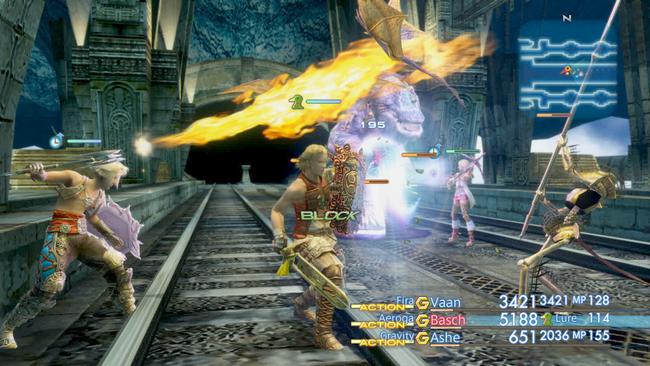
Everything prior to this paragraph touches on the multitude of fascinating gameplay elements of Final Fantasy XII, but that's a lot of written words without mentioning the narrative side of things. Obviously, these elements will not largely be affected in a remaster, but don't get the wrong idea, I really appreciate the way the game handles this as well.
The story flow of Final Fantasy XII is actually a bit more streamlined than I remembered it being. It largely follows the story of Ashelia B'Nargin Dalmasca, a widowed princess, as she travels to gain the ability to reclaim independence for her subjugated kingdom. For the most part, the story impetus is to continually travel to various places in the game, whether it's to collect a special item or to meet a certain person.
The game carries its story with a certain sort of theatrical tone, akin to something like a stage play. In a way similar to the Gambit System, the storyline itself also feels "one step removed" from a more intimate narrative typically found in the genre. In a sense, Final Fantasy XII is actually not a very personal story at all. There is not a large emotional spotlight placed on the cast, and several characters do not have much to show in terms of character growth or development. Not saying that these characters aren't likable or believable, just that the narrative focus is not quite centered on them.
It instead focuses more on the fate of kingdoms, and characters are established as smaller pieces of a much larger whole, rather than a storyline strictly revolving around the characters themselves. In fact, this leads to an amusing result where Vaan - the "main protagonist" - doesn't actually feel like much of a protagonist at all, rather he's, quite literally, just a kid caught up in the politics of nations.
Much like the Gambit System, this too might sound something that you simply do not want to see in an RPG. I really came to appreciate it, however, as a different sort of narrative told in a way you don't often see. What the narrative may lack in intimacy it more than makes up for in quality localization, voice-over, cinematography, diction, and tone. Final Fantasy XII remains the best-localized entry in the series, even one of the best in the genre as a whole. The dialogue is charming, witty, and interestingly constructed. Concisely, the narrative is an effective and extremely eloquently written vehicle behind the gameplay.
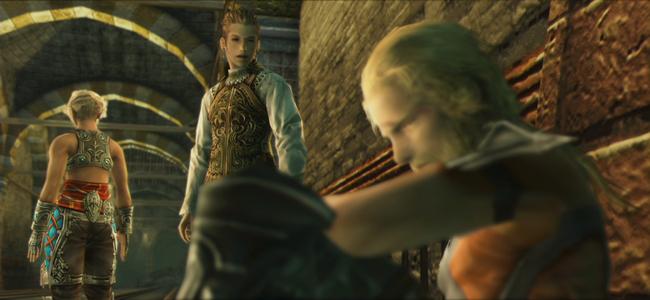
For the multitude of improvements that The Zodiac Age adds to an already great game, there are just a couple of small oversights that I can't help but find as missed opportunities here. The job system, while a fantastic addition to the license system, is a permanent choice on the part of the player. Once a character is set to a certain job, you can never change your mind and that character is stuck in the role forever. There is no way to respec or alter what the classes can do.
While you can probably get through the game without too much issue using a multitude of combinations, it almost feels arbitrarily restrictive that there is no method to redo the decision in any fashion. This seems especially weird to me that in other Final Fantasy games with job systems - such as Tactics or Final Fantasy X-2 - players are allowed quite a bit more flexibility in job coordination. Especially considering the game's length, being stuck to a decision for potentially for 60+ hours can be daunting. I'm not suggesting that the game should allow each character to perform /every/ job simultaneously (that's basically what the original release did!) but an option to respec would have been nice to include.
Second, reserve party members do not gain any EXP (although they do gain license points). In the original version of Final Fantasy XII this often led players to stick with a set party of three for the entirety of the game, especially considering all characters could perform all tasks so there was little reason to swap characters out of battle to begin with.
Now, with dedicated jobs and certain skills being tied to certain jobs, there is higher incentive to use the full set, but limiting the EXP share makes doing that a bit of a chore. It's still certainly possible to build a group of three units that can cover basically all your bases for what the game has to throw at you, this still feels like a weird restriction for a game the otherwise adds a lot of convenience to the player.
A smaller but still notable mention: One late-game area - The Great Crystal - is somewhat infamous for its labyrinthine structure as well being the only place in the game that does not have a usable mini-map. When the map-overlay feature was introduced for The Zodiac Age, the first thing that came to my mind was how especially useful it would be for that area of the game - had they allowed the player to actually use a map there. But alas, there is still no map in The Great Crystal and you are still relegated to using an online map if you want some help to get through the area. For all the other conveniences The Zodiac Age adds to the package, it feels a bit strange that something like this was left untouched.
Let me emphasize: none of these exclusions are significant enough to damper how great this rerelease turned out, but I can't help but think that this would have been the perfect opportunity to remedy some of these aspects to polish off the rerelease.
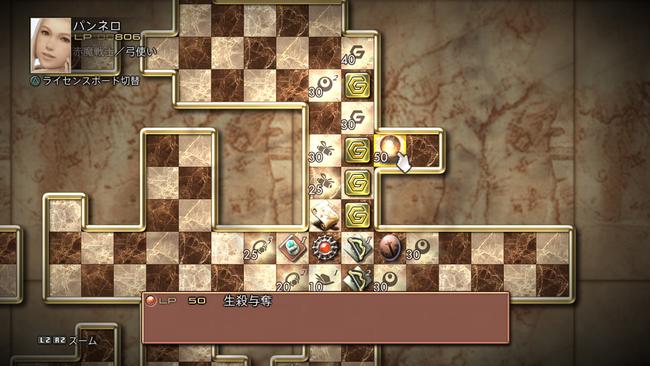
All this has been gushing about the design, but on the technical side of things, there's also a lot to like. New texture work - especially on character models - is very well done and makes rewatching cutscenes a treat. The re-orchestrated OST is absolutely fantastic overall, yet you still have the option to switch to the original tracks if you choose.
Audio quality is improved across the board, although there are still some lines scattered about that retain a bit of a muffled sound like in the original release. Load times are dramatically shorter, and the new autosave feature is not only convenient in the case of game-overs, but it makes hunting for rare loot a little bit less tedious as well. There are even some other nifty additions like the option to invert camera control that was not present in the original release.
Western players are in for a treat with all of these adjustments and improvements made from the original release of Final Fantasy XII - many of which are old but never made their way West originally. The job system adds another level of interest to party coordination, elements like fast-forward and map overlays add a considerable amount of convenience, and the game looks and sounds great too. This remaster may not change the mind of everyone, but it is no doubt one of the most intriguing entries in the franchise and clearly the definitive version of a truly brilliant game.